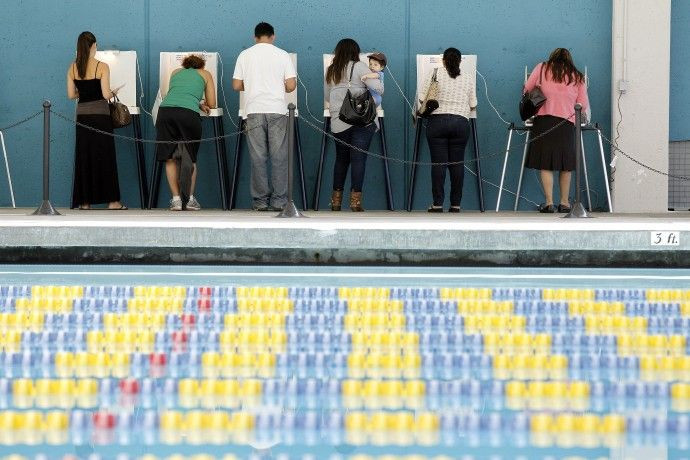The American Voter: Crazy Or Just Deprived?
Opinion

One definition of insanity is continuing to do the same thing over and over while expecting a different outcome. Well, that pretty much describes our political election process today.
For years, a huge preponderance of Americans have declared the opinion that America is headed in the wrong direction, that it’s on the wrong track. And yet, come election time, we continue to choose between the same two political parties that, between them, have been responsible for producing these apparently unacceptable results.
Every election we expect a different outcome -- after all, didn’t they promise it to us when asking for our vote? Doesn’t that sound like a classic definition of insanity? Change doesn’t happen, does it? Actually, in Washington today, not much of anything seems to happen, does it? And our opinions of government don’t change, do they? We continue to opine that our elected leaders are taking us, as a society, down the wrong garden path. Come on.
Should we conclude then that, as voters, we Americans are indeed crazy? Is it the case, as some have maintained, that we get just the kind of government we deserve? After all, “we” vote them in. Therefore, we must be, politically speaking, crazy.
I don’t quite buy that conclusion. We’re not crazy -- most of us -- but we are politically deprived today. Too many of us are purposely deprived of political preference because of a monopoly -- a duopoly, actually -- of two strongly ideological opposing parties that have decided they will resist real political challenge in their arena. This duopoly proved workable for a number of generations, so long as each maintained a “big tent” philosophy under which most voters -- moderates to highly partisans -- felt comfortable, and had some sense of inclusion in the political process.
Well, that was yesteryear. The parties, while nominally the same now, are, for practical political purposes, not the same. Today, they invite the extreme and purge the moderate. Today, by the shrinking memberships they enjoy -- by voter preference -- they are becoming but shadows of what they once represented.
Today, neither is capable of governing for at least most of the people even some of the time. They simply do not represent their interests. Today, it seems that what they principally represent is narrow partisan interests, more for self-promoting political power than for governing purposes.
So if this is the case, what has become of the less extreme, the more moderate among us, those who they have decided not to represent within their fold? In truth, most are politically homeless; they have no place to go. They’re still conservatives and liberals, just not Republicans or Democrats. Today, if they vote, most register as political Independents. And, today, they represent a plurality of all registered voters, more in number than either who call themselves Republicans or Democrats.
And yet these two parties still represent what is passed off as political choice come election time, both clawing and fawning for the support of those voters who have rejected them. Isn’t that crazy?
This situation can’t last.
If there’s little possibility of reversal occurring within the parties, and most see no indication of this, then they are creating conditions for genuine political challenge. Who from? From the hoard of political Independents, obviously. Given an opportunity, it seems highly likely that a genuinely different Independent political alternative to the duopoly would succeed where other third-party attempts have failed. But it must offer clear differentiation.
It must demonstrate how and why it would approach governing differently, resulting in a different outcome. Such an Independent political option would demonstrate to the world, and to ourselves, that America’s voters are far from crazy, given the proper electoral environment.
Considering the evidence surrounding their growing number, while the parties show declines, political Independents are strong proof of dissatisfaction with the results of ideological government. They’re proof of an inadequate political marketplace. And they may well be a proxy for the moderate -- middle -- majority of voters. Independents represent agents for political change. That’s welcome news for many, I’m sure.
But how’s it going to come about? By wishful thinking? Hardly.
There is a sound basis for the development of such an Independent political option, one that could rebalance America. One that could eliminate the political conditions that lead us to believe America is heading in the wrong direction. It’s neither utopian nor outside our existing electoral structure.
Do you really believe, after all we’ve been through, that good government results from ideological politics? It’s only impossible if you stop to think about it.
We need a change.
Thomas Richard Harry is the author of “Boom! A Revolting Situation: The Failure Of Ideological Politics And The Disappointment Of Ideological Government.”
© Copyright IBTimes 2024. All rights reserved.





















